|
part 4. |
A rather extensive collection of wonderful magic lantern slide sets |
|
|
||||||||||
| Go to: | part 1 | part 2 | part 3 | part 4 | part 5 | part 6 | part 7 | part 8 | part 9 | part 10 |
| part 11 | part 12 | part 13 | part 14 | part 15 | part 16 | part 17 | part 18 | part 19 | part 20 | |
|
|
||||||||||
|
Rip Van Winkle Set of 12 square magic lantern slides made by York & Son, England. |
||
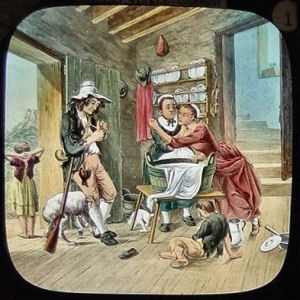 |
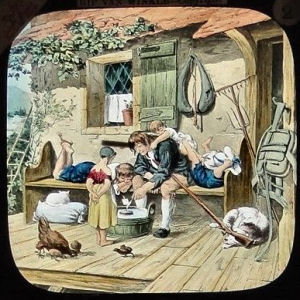 |
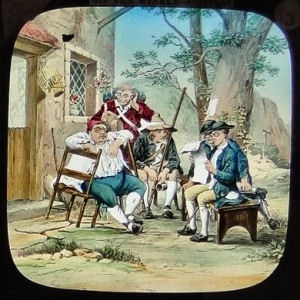 |
| 1. Dame Van Winkle expressing her mind. | 2. Rip Van Winkle's perfect contentment. | 3. Derrick Van Bummil reading the news. |
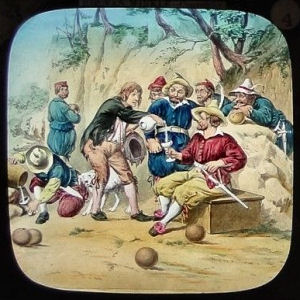 |
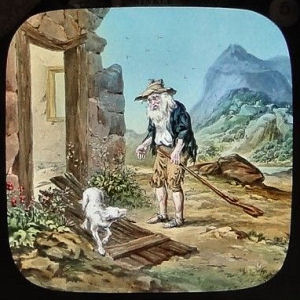 |
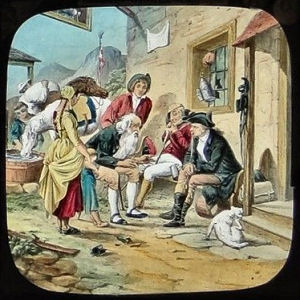 |
| 4. Rip Van Winkle waiting upon the strange company. | 5. Rip Van Winkle after his long sleep. | 6. Rip Van Winkle relating his story. |
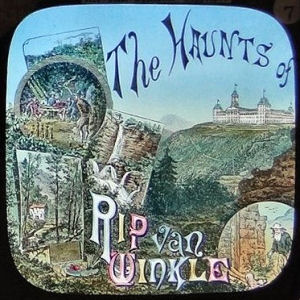 |
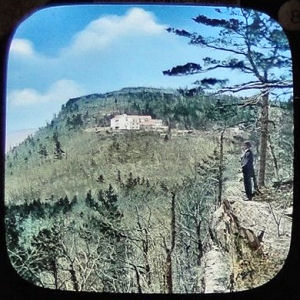 |
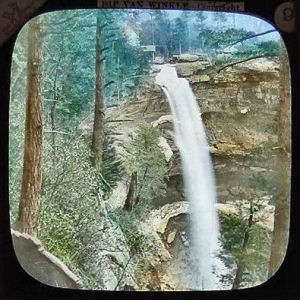 |
| 7. The Haunts of Rip Van Winkle. | 8. Sunset Rock, Catskill. | 9. The Catskill Water Fall. |
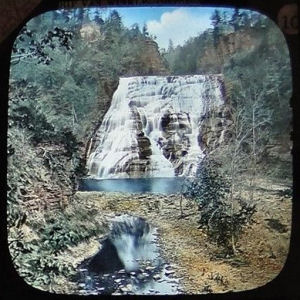 |
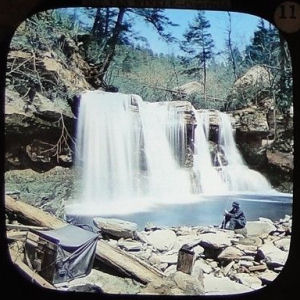 |
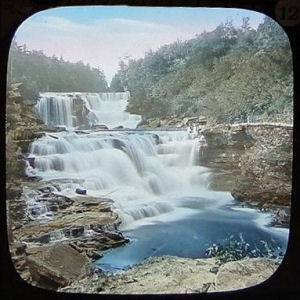 |
| 10. The Cascades of the Catskill. | 11. Bastion Falls, Catskill. | 12. Cascade Profile Rock. |
|
"Rip Van Winkle" is a short story by the American
author Washington Irving published in 1819. Although the story is set in New
York's Catskill Mountains, Irving later admitted, "When I wrote the story, I had
never been on the Catskills". The story's title character is a Dutch-American
villager living around the time of the American Revolutionary War. Summary: The Dutch villager Rip Van Winkle lives in a pleasant village, at the foot of New York's Catskill Mountains. Van Winkle enjoys solitary activities in the wilderness or hanging out at the inn with his friends. He is loved by all in town—especially the children to whom he tells stories or for whom he repairs toys. However, he tends to shirk hard work, to his nagging wife's dismay, which has caused his home and farm to fall into disarray. One autumn day, to escape his wife's nagging, Van Winkle wanders into the mountains with his dog, Wolf. Hearing his name called out, Van Winkle sees a man wearing antiquated Dutch clothing; he is carrying a keg up the mountain and requires help. Together, the men and Wolf proceed to a hollow in which Rip discovers the source of thunderous noises: a group of ornately dressed, silent, bearded men who are playing nine-pins. Van Winkle does not ask who they are or how they know his name. Instead, he begins to drink some of their Hollands and soon falls asleep. When he awakens, Van Winkle discovers shocking changes: his musket is rotting and rusty, his beard is a foot long, and his dog is nowhere to be found. He returns to his village, where he recognizes no one. Van Winkle returns just after an election, and people are asking how he voted. Never having cast a ballot in his life, Van Winkle proclaims himself a faithful subject of King George III's, unaware that the American Revolution has taken place, and nearly gets himself into trouble with the townspeople until one elderly woman recognizes him as the long lost Rip Van Winkle. King George's portrait on the inn's sign has been replaced with one of George Washington. Van Winkle learns the unfortunate fact that most of his friends were killed fighting in the American Revolution. He is also disturbed to find another man called Rip Van Winkle; it is his son, now grown up. Van Winkle also discovers that his wife died some time ago but is not saddened by the news. Van Winkle learns that the men he met in the mountains are rumoured to be the ghosts of Hendrick (Henry) Hudson's crew, which had vanished long ago, and that he has been away from the village for at least 20 years. His grown daughter takes him in. He resumes his usual idleness, and his strange tale is solemnly taken to heart by the Dutch settlers, particularly by the children who say that whenever thunder is heard, the men in the mountains must be playing nine-pins. The henpecked husbands in the area often wish they could have a sip of Van Winkle's elixir to sleep through their own wives' nagging. (Source: Wikipedia Encyclopedia) |
||
 The American optician T.H. McAllister produced this set of magic lantern slides mounted in a wooden frame using the same images, now in a circular form. |
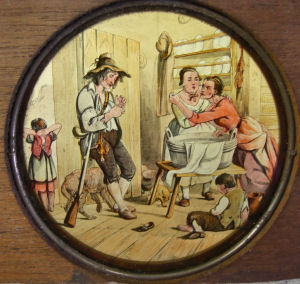 |
|
 |
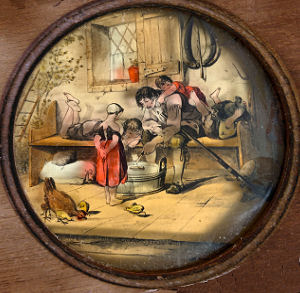 |
|
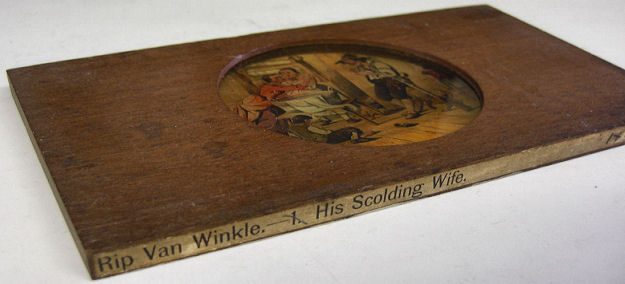 |
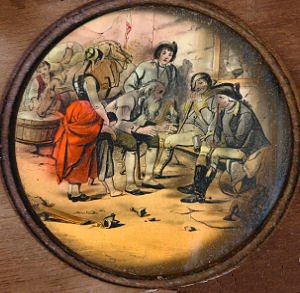 |
|
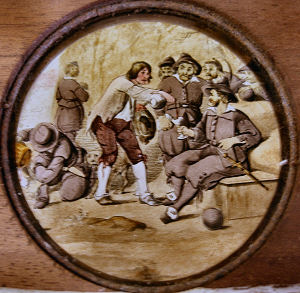 |
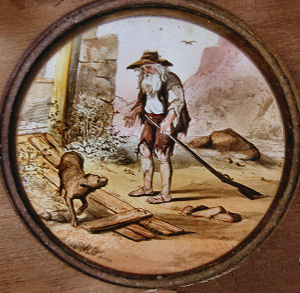 |
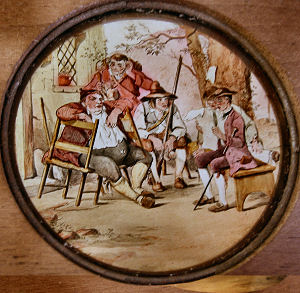 |
| And finally another set is known, made or sold by the American company of Erker Bros, St. Louis. The slides have the American format of 8.2 x 10 cm. | ||
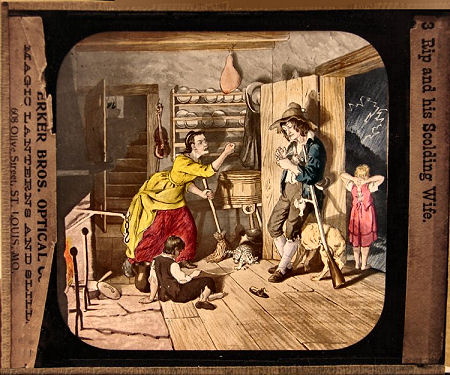 |
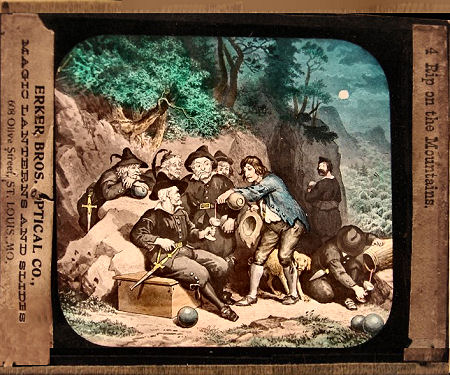 |
|
Yankee Doodle Dandy 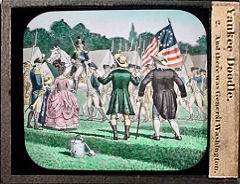 Set of 6 magic lantern slides showing representations of six verses of the song Yankee Doodle Dandy. The slides are marked as being part of the Economic Series. A label on each slide shows the first line of each of six verses. The slides have the American format of 8.2 x 10 cm. (CHORUS) Yankee doodle, keep it up, Yankee doodle dandy; Mind the music and the step, And with the girls be handy. |
|
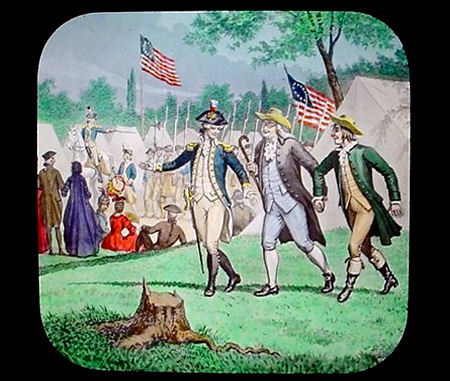 |
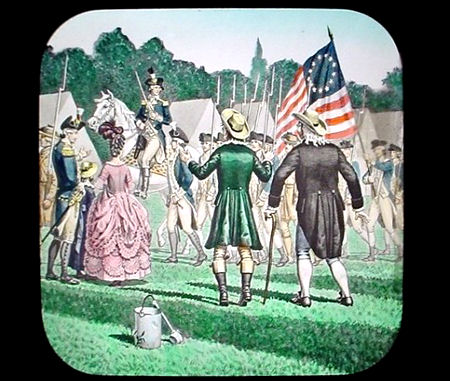 |
|
Father and I went down to camp, Along with Captain Gooding; And there we saw the men and boys, As thick as hasty pudding. |
And there was General Washington Upon a slapping stallion, A-giving orders to his men, I guess there was a million. |
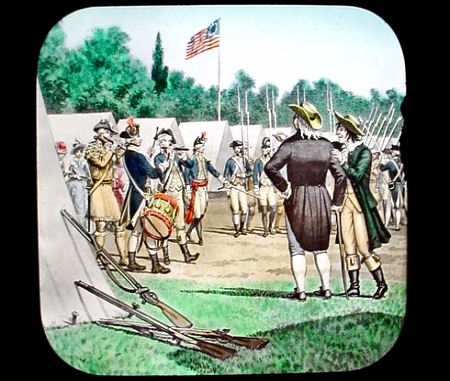 |
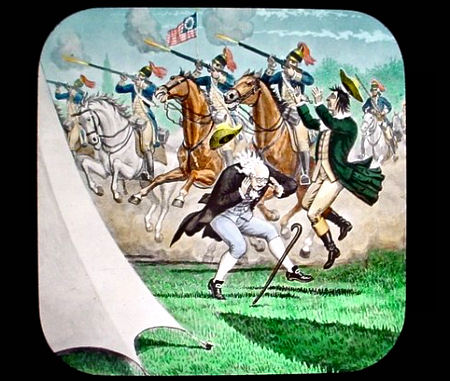 |
|
And there I see a little keg, The heads were made of leather; They knocked upon it with little clubs, And called the folks together. |
The troopers, too, would gallop up And fire right in our faces; It scared me almost to death To see them run such races. |
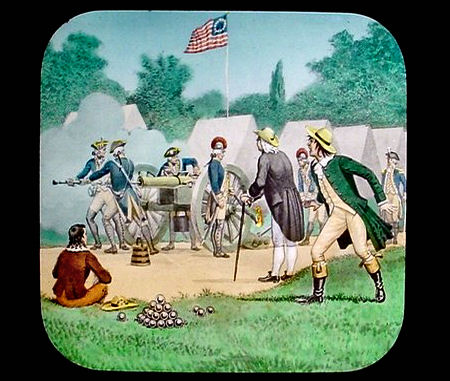 |
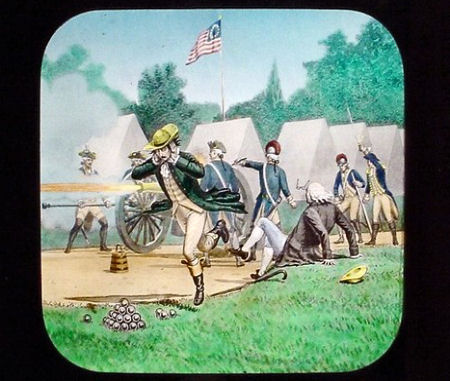 |
|
And there they had a swamping gun, Large as a log of maple; Upon a deuced little cart, A load for father's cattle. |
It scared me so, I streaked if off, Nor stopped, as I remember, Nor turned around ‘til I got home, Locked up in mother’s chamber. |
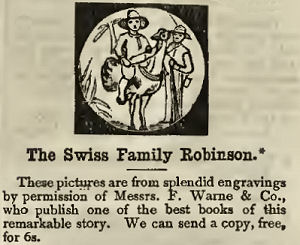 |
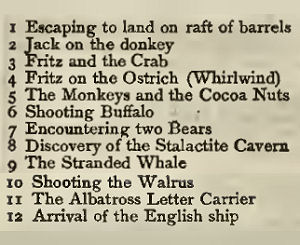 |
The Swiss Family
Robinson Set of 12 magic lantern slides after the well-known novel The Swiss Family Robinson by the Swiss pastor Johann David Wyss, first published in 1812, about a Swiss family shipwrecked in the East Indies en route to Port Jackson, Australia. |
|
The first two pictures are copied from J. Theobald and Company's extra special illustrated catalogue of magic lanterns, slides and apparatus (London: Theobald & Co., 1893). |
||
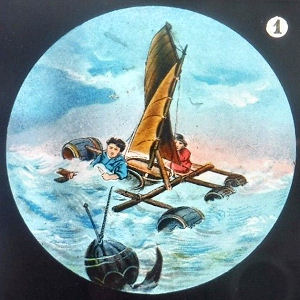 |
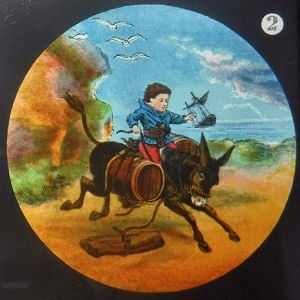 |
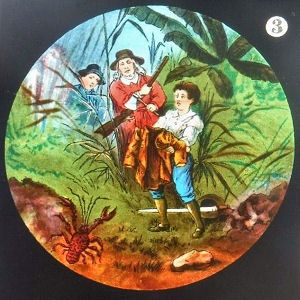 |
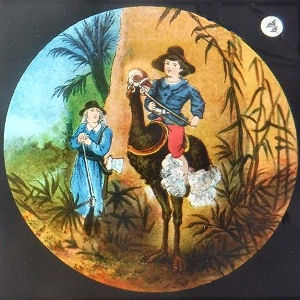 |
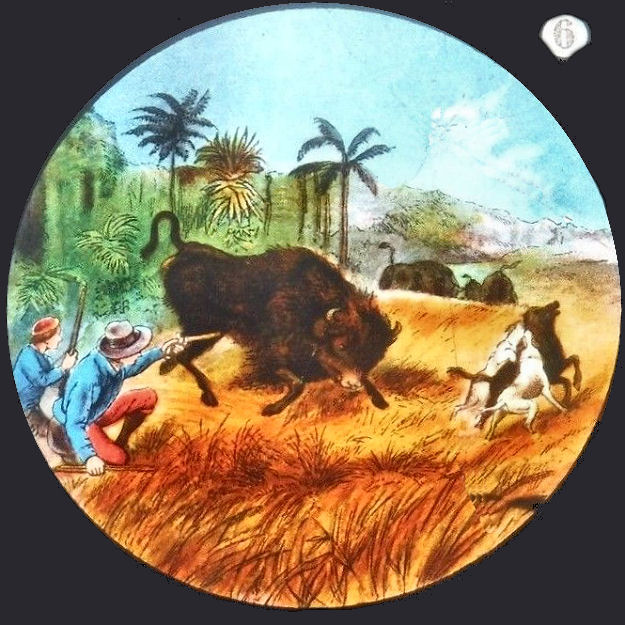 |
|
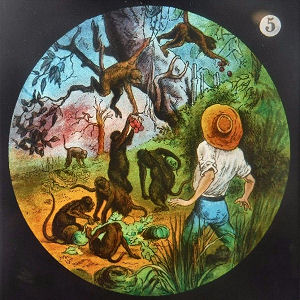 |
||
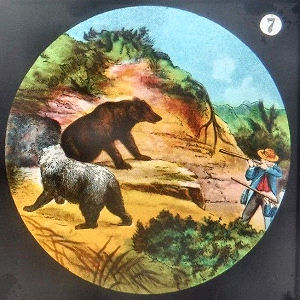 |
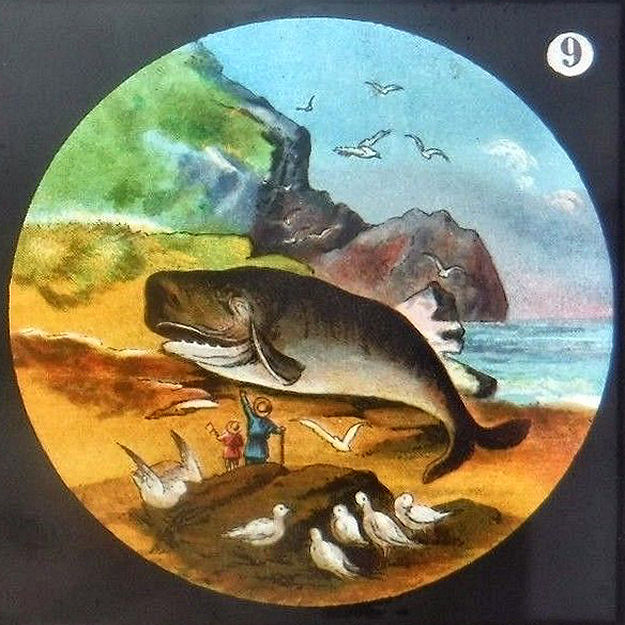 |
|
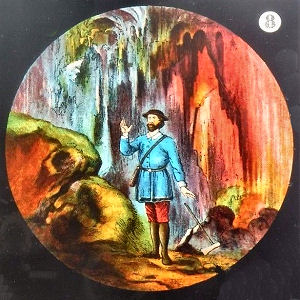 |
||
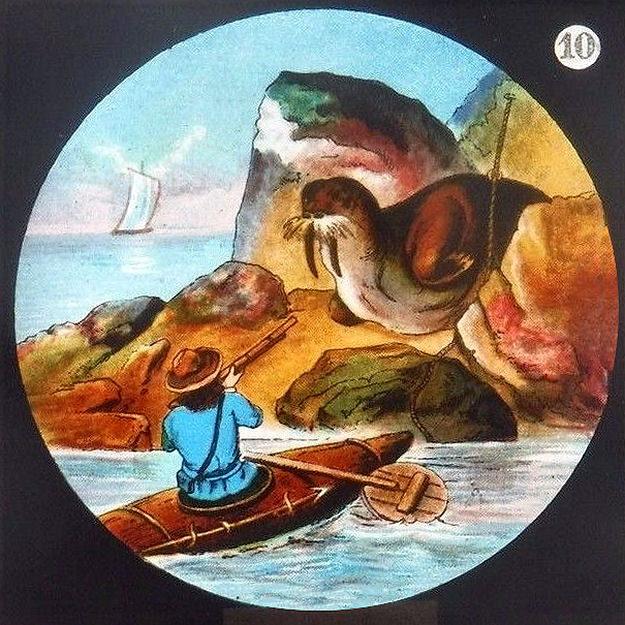 |
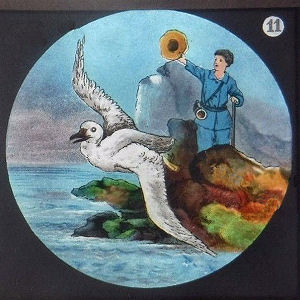 |
|
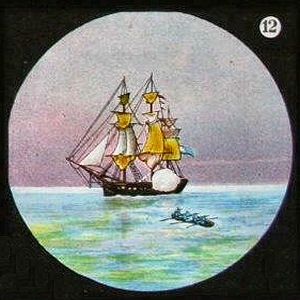 |
||
|
Eugene Aram A beautiful set of eight square magic lantern slides made by the English manufacturer York & Son. |
||
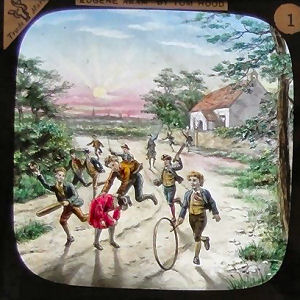 |
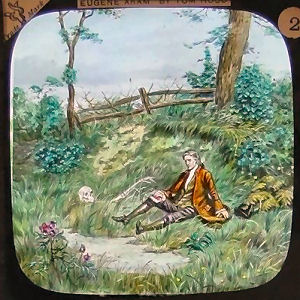 |
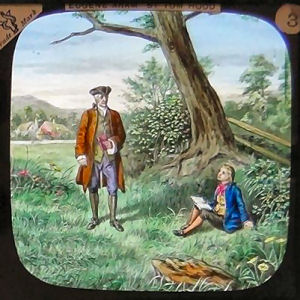 |
| 1. 'Twas in the prime of summer time. | 2. But the usher sat remote from all. | 3. 'My gentle lad, what is't you read?' |
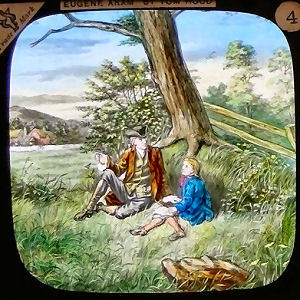 |
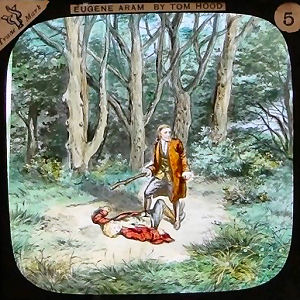 |
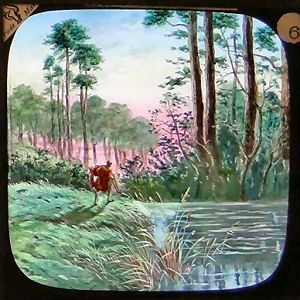 |
| 4. And down he sat beside the lad. | 5. Two sudden blows with a ragged stick. | 6. I took the dreary body up. |
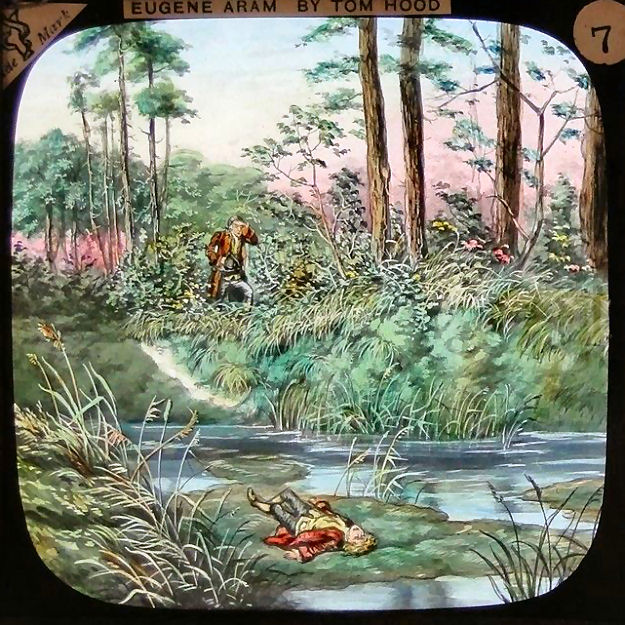 |
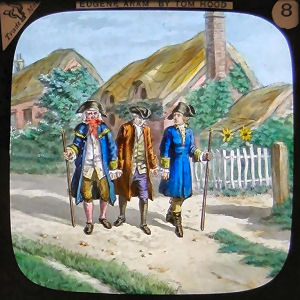 |
|
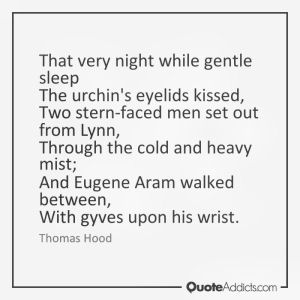 |
||
| 7. And I saw the dead in the river bed. | 8. And Eugene Aram walked between. | Last verse of the poem The dream of Eugene Aram by Thomas Hood. |
|
Eugene Aram (1704 – 16 August 1759) was an English
philologist, but also infamous as the murderer celebrated by Thomas Hood in his
ballad, The Dream of Eugene Aram. (philology is the study of literary texts and of written records, the establishment of their authenticity and their original form, and the determination of their meaning.) |
||
|
Butcher story A set of 10 square magic lantern slides made by an unknown manufacturer. Even the real title of the set is unknown. Size: 8.2 x 8.2 cm. |
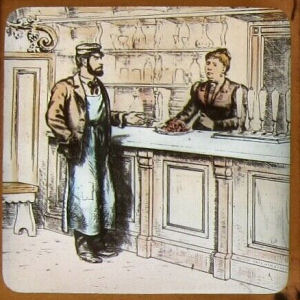 |
|
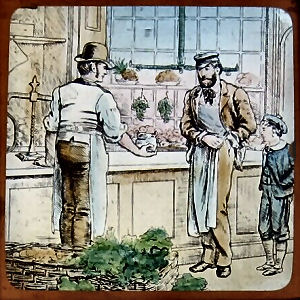 |
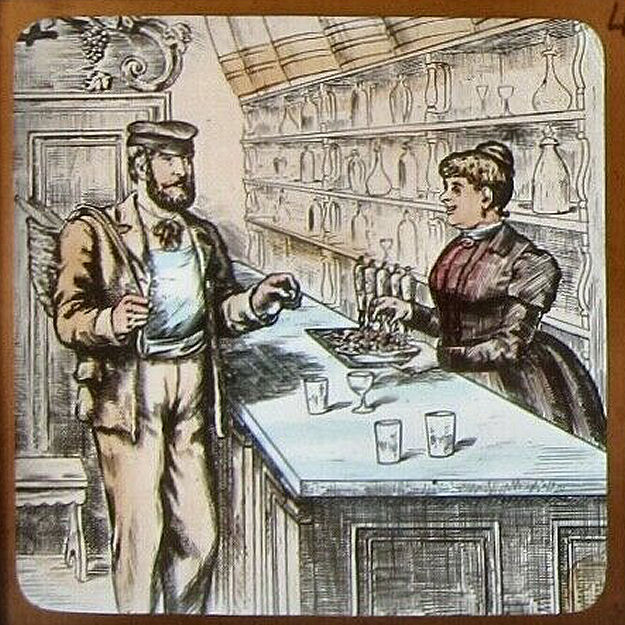 |
|
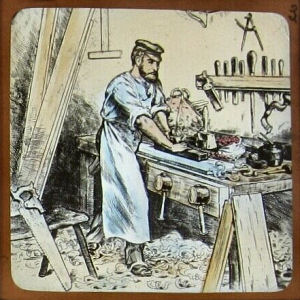 |
||
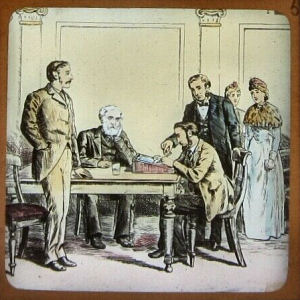 |
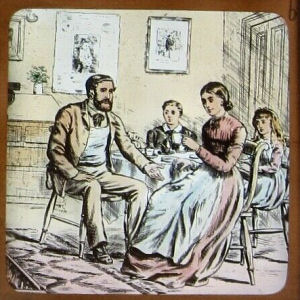 |
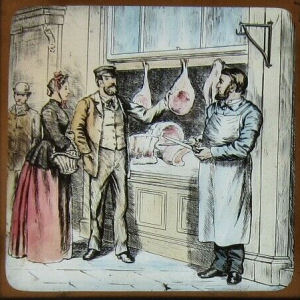 |
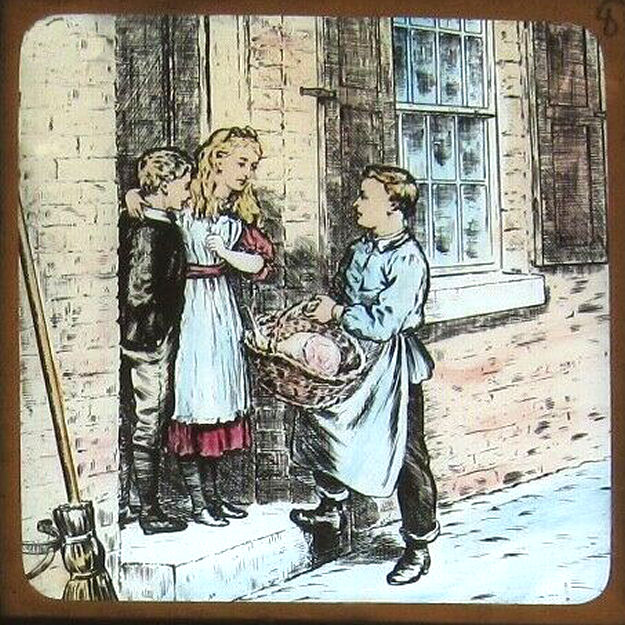 |
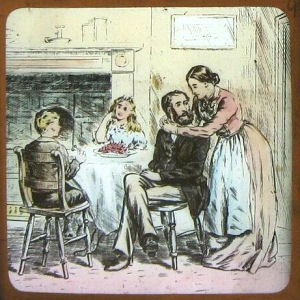 |
|
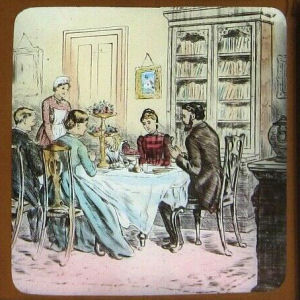 |
||
| More sets.... | ||
| |
©1997-2025 'de Luikerwaal' All rights reserved. Last update: 14-02-2025. |
|